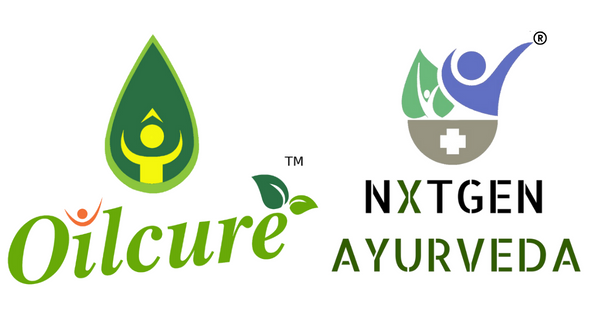1
/
of
5
Nxtgen Ayurveda
Banaba Leaf Powder - 150 gm
Banaba Leaf Powder - 150 gm
4 reviews
Regular price
Rs. 400.00
Regular price
Sale price
Rs. 400.00
Unit price
/
per
Tax included.
Shipping calculated at checkout.
Couldn't load pickup availability
Banaba Leaf Powder is crafted from premium banaba leaves, traditionally used in Ayurveda and Philippine herbal practices for overall wellness. Banaba leaves naturally contain antioxidants and minerals like manganese and zinc, supporting a balanced diet and healthy lifestyle. Enjoy banaba tea as a refreshing herbal beverage.
Caution: Consult your doctor before use during pregnancy or upcoming surgery.
Disclaimer: This product is not intended to diagnose, treat, cure, or prevent disease. For educational purposes only
Share
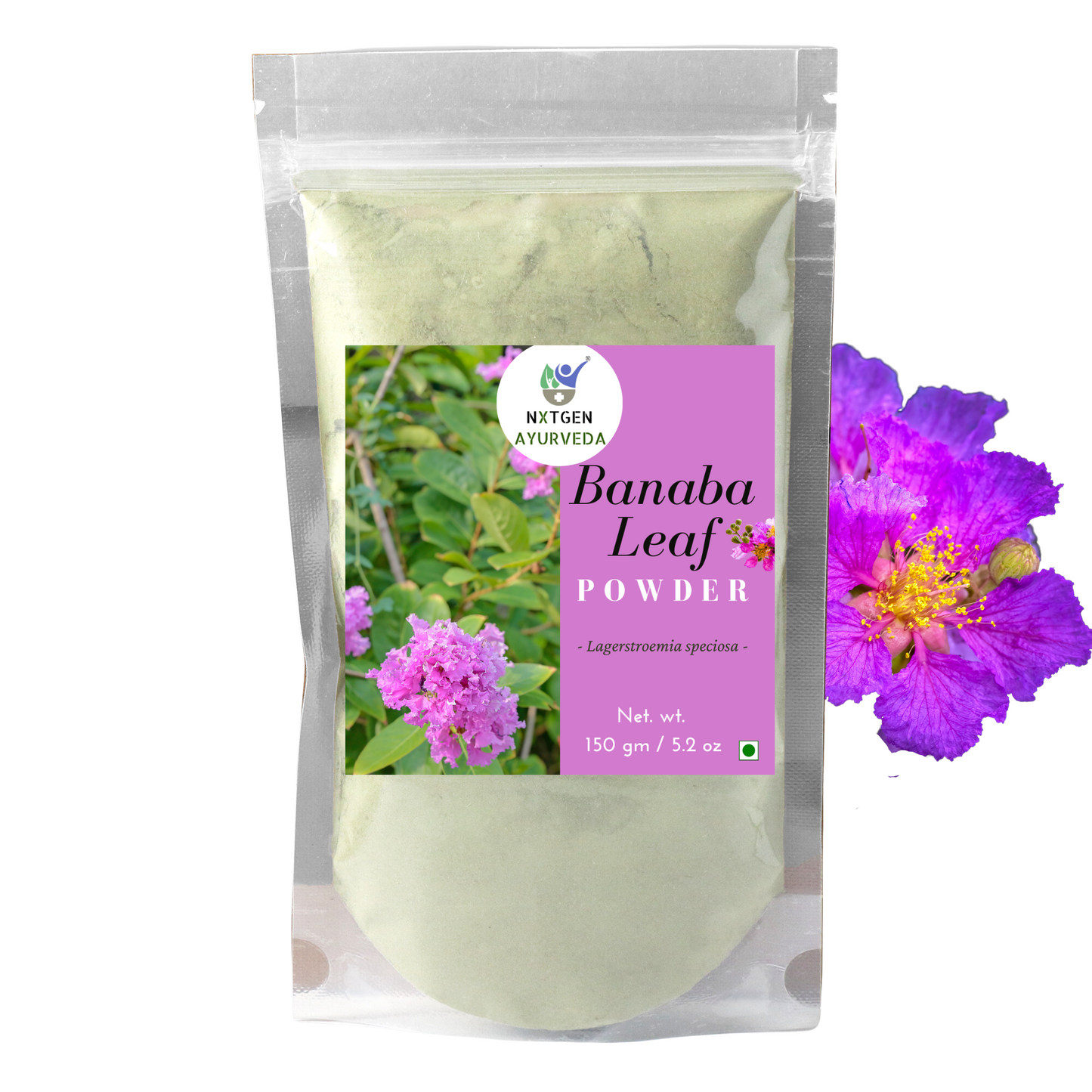
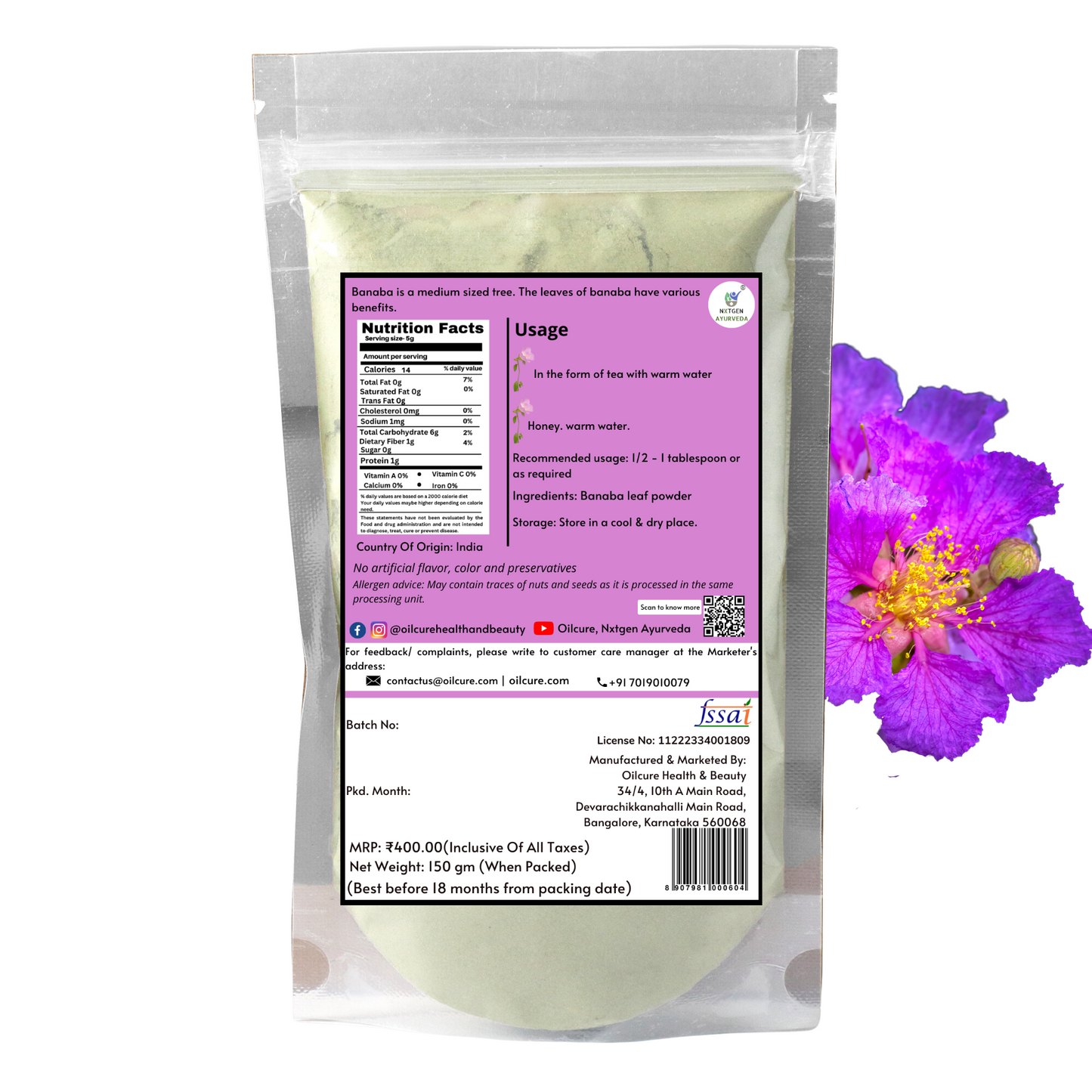
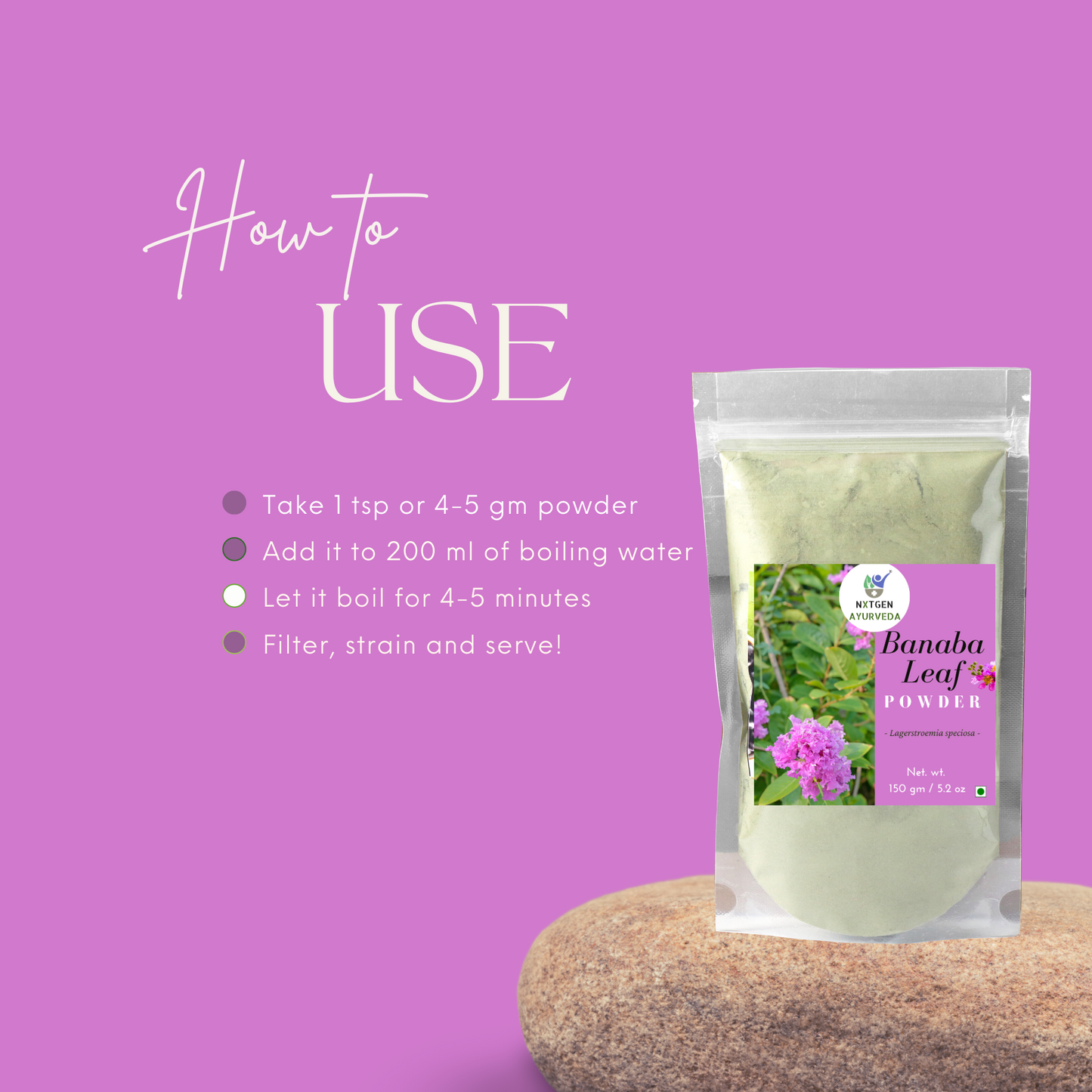
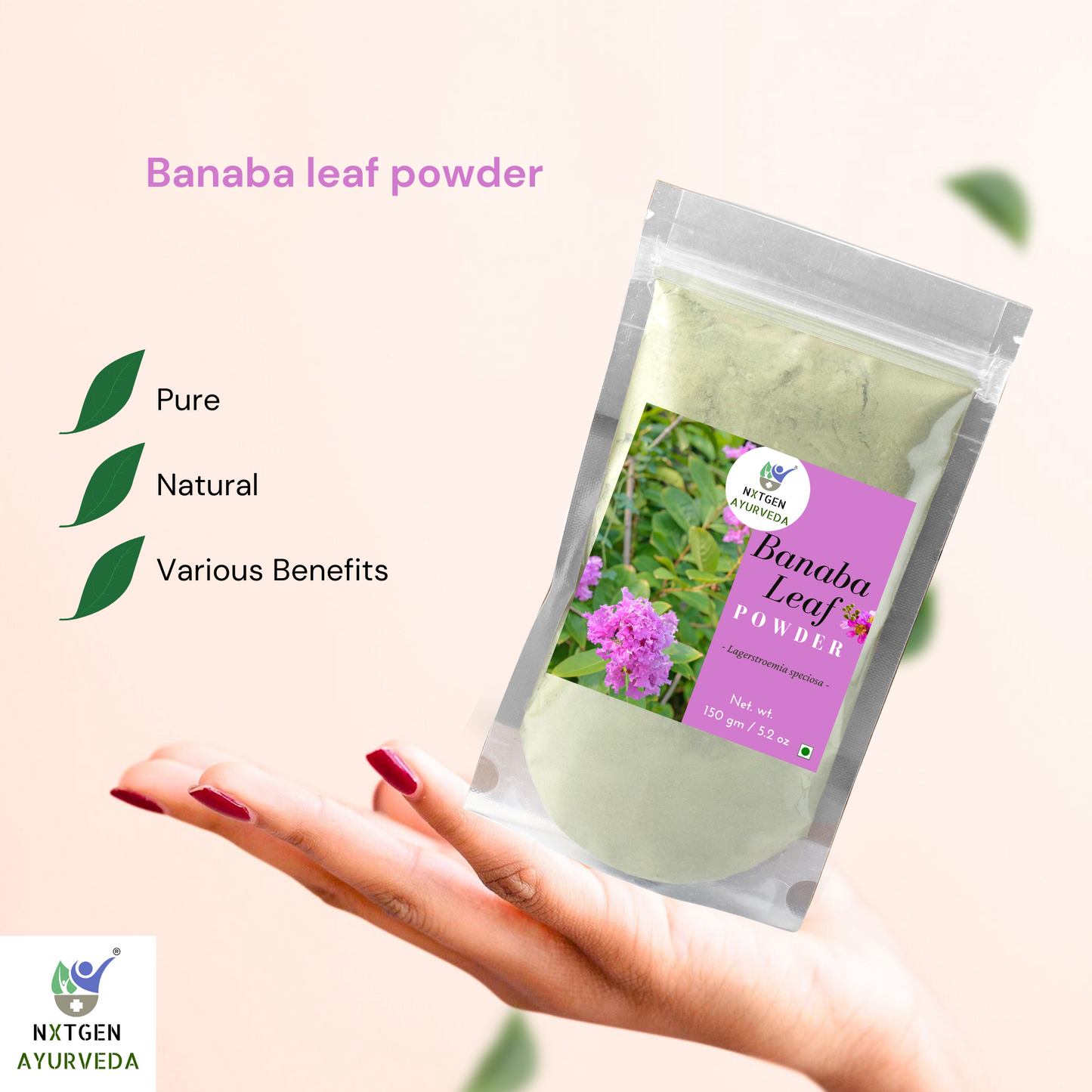
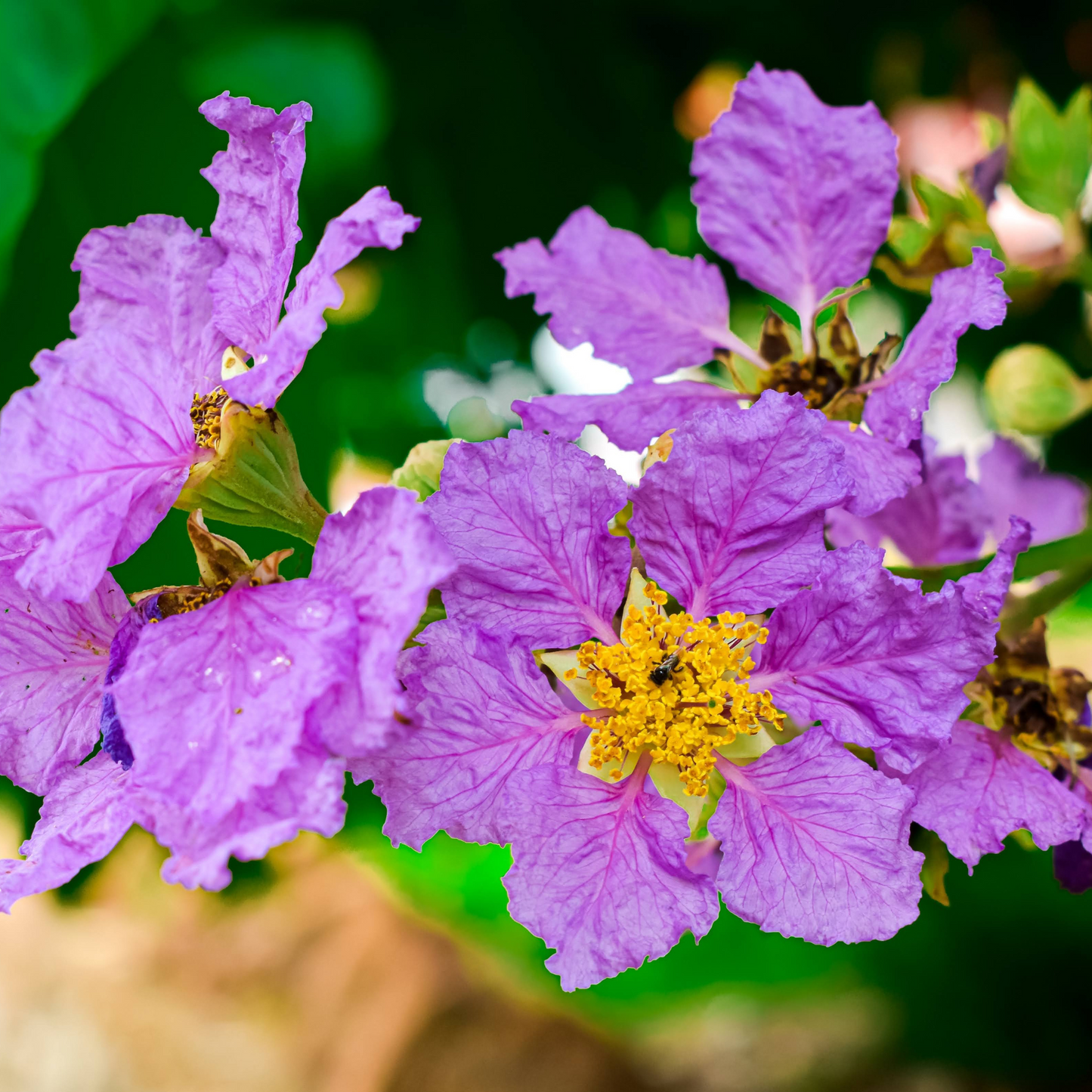
V
Veena Bawa Very good product for general health
L
Lalita Rastogi Delightful
L
Labeen Rahim It holds together quality and quantity
K
Kushal Rao Garg Excellent!!!
